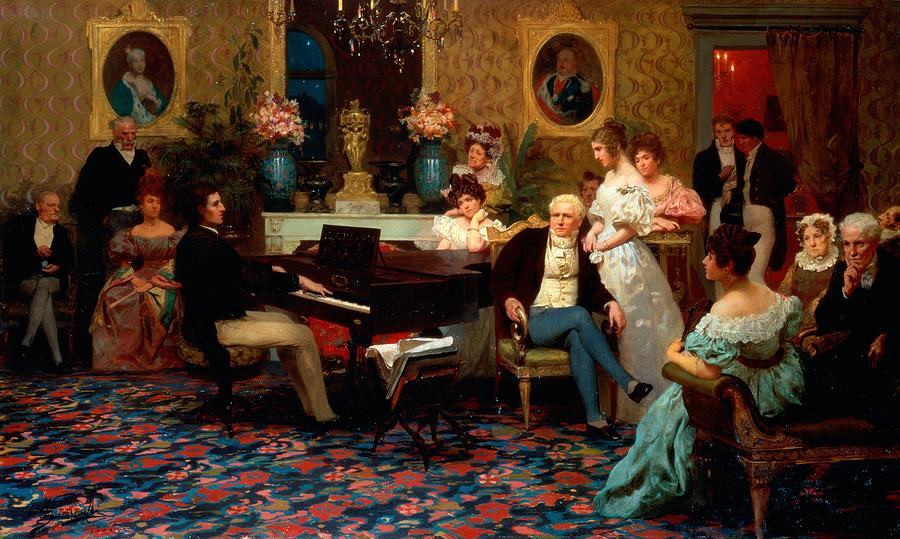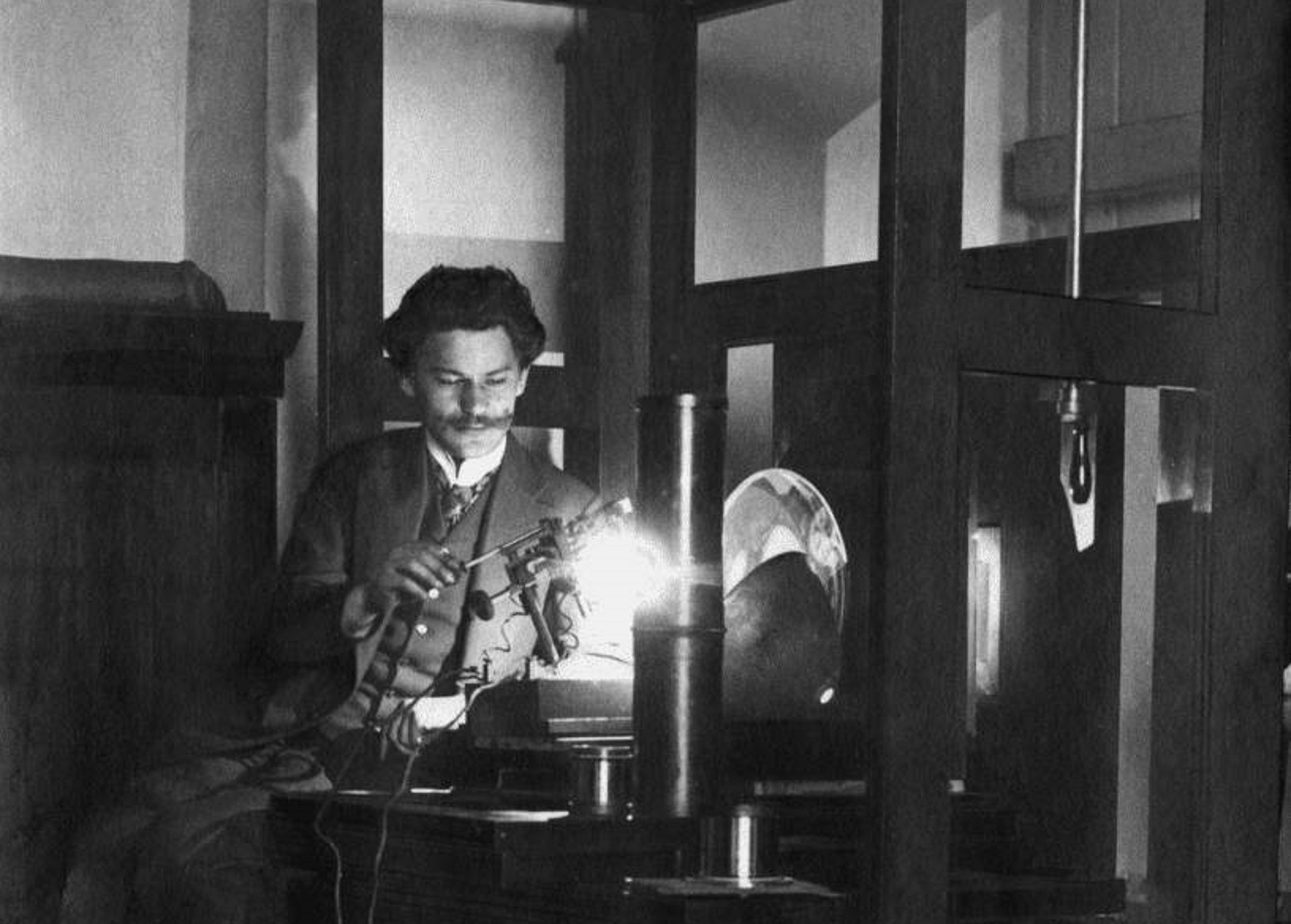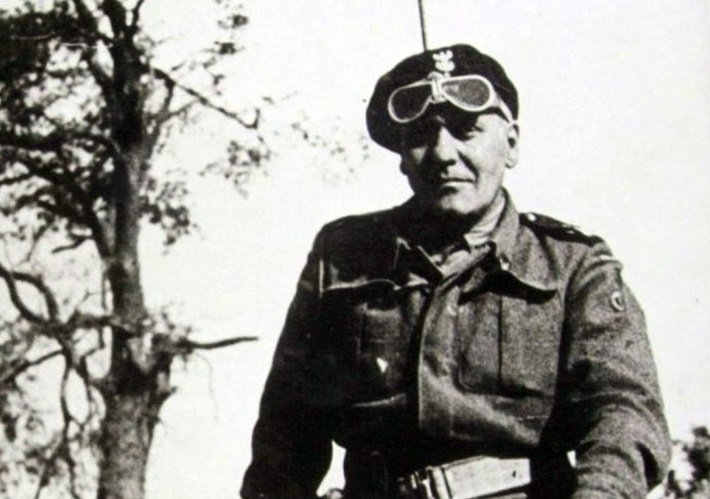polishhistory: Let us begin with the issue that raises disputes among historians. When should we really celebrate Fryderyk Chopin’s birthday?
Zbigniew Skowron: This question remains unresolved to this day because two dates are at stake. In the light of the official document, which is Chopin’s birth certificate dated 22 February 1810, one should celebrate his birthday on 22 February. However, it is known from Chopin’s correspondence with his family, and from the accounts of his close friends that his birthday was celebrated on 1 March. Therefore, it is now possible to celebrate both an official and unofficial birthday, and the latter is gaining more and more recognition. It is worth mentioning that the Fryderyk Chopin Institute has been celebrating the unofficial anniversary for many years.

The life of his father, Nicolas (in the Polish version – Mikołaj) seems interesting. His family worked on the Marainville estate in France that belonged to the Polish magnate, Michał Jan Pac. As a teenager, Nicolas came to Poland to work as an official. He would have seen the partitions of Poland and participated in the Kościuszko Uprising. Was he so much influenced by the patriotic Polish environment that he decided to stay in Poland?
Mikołaj Chopin came to Poland in 1787 after the death of Count Michał Pac, together with the administrator of his property in Marainville, Adam Weydlich. Mikołaj was certainly impressed by the patriotic atmosphere of the last few years of free Poland. After all, he witnessed the adoption of the Constitution of 3 May 1791, the war in its defence, the Kościuszko Uprising and the last, and third partition of Poland in 1795. However, what also made him stay in Poland was – as you might imagine – a fear of the social mood that led to the outbreak of the French Revolution in 1789. Mikołaj was certainly aware he would have been enlisted in France at the time of revolutionary upheaval and terror.
However, the first person who aroused a love for music in little Fryderyk was his mother, Tekla Justyna, who came from the the Krzyżanowski family, a destitute noble family.
Indeed, Fryderyk certainly owed his love for music to his mother, although we do not have information about her musical education. It is known that Chopin’s father was also musical as he played the flute. It can therefore be assumed that music and playing music at home were an important, permanent element in Chopin’s family life.
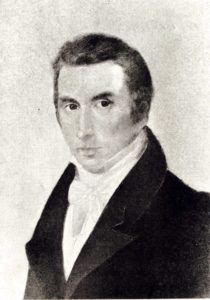
Józef Sikorski wrote that Frycek, as the composer was called as a pet name, cried as a child when he heard his mother playing the piano. Sikorski is also the author of many other anecdotes about Chopin’s youth and life. So what portrait of the composer emerges from the memories of his contemporaries?
There are many myths and inventions about Chopin’s musical experience in his childhood, which are repeated by successive generations of authors writing about Chopin. I believe we may “see” a real portrait of Chopin thanks to the memories of his peers from well-off families, staying at a boarding house run by the Chopin family in their apartment at Krakowskie Przedmieście, in the area of the current University of Warsaw. There are memories written, among others by the Kolberg brothers: Oskar and Wilhelm. We learn from them, on the one hand, that Fryderyk was a vigorous young man full of wit and on the other that he was very musically talented and was able to attract a group of his peers who would gather around him while he was playing the piano.
Was Fryderyk a “brilliant child”?
This term fully fits him. This is shown by the beginnings of his career as a pianist, bringing to mind the initial artistic path of Wolfgang Amadeus Mozart. It is interesting to note that Chopin’s first performances as recorded by the Warsaw press took place in 1818 at the Radziwiłł Palace. His compositional talent came to light just as early, as recorded by the dedication to Countess Victoria Skarbek, of the Polonaise in G minor, written by the eight-year-old Chopin.
The young composer was a sensation in the social world. Some, like the eminent poet and writer Julian Ursyn Niemcewicz, ridiculed this sudden and specific fashion, but nobody could deny the boy had a great talent.
Chopin was often invited to perform in the private apartments of many Warsaw families ranked high in the social hierarchy; he was also a guest of the Grand Duke Konstanty in Belvedere. So even if hosting Chopin in the headquarters of the Warsaw social elite became a kind of fashion, his private performances provided his listeners with high-quality music which was ultimately appreciated by Niemcewicz, one of Chopin’s admirers, both during the Warsaw period and after he emigrated to Paris.

Soon he came under the care of the composer and teacher Józef Elsner at the Warsaw Conservatory of Music. They quickly established a close understanding and a long friendship. What influence did Elsner have on Chopin?
Firstly, I would like to clarify one thing: Chopin was not a student of the Warsaw Conservatoire, but of the Main School of Music which was part of the Faculty of Fine Arts of the then Royal University of Warsaw. At the Main School of Music, he studied music theory and composition from 1826 to 1829 under the direction of the school’s rector – Józef Elsner. Indeed, one can speak of a unique understanding between Chopin and Elsner, which turned into their later long-term friendship, confirmed by an exchange of correspondence. I think it is difficult to talk about the influence of Elsner on Chopin but one can understand the artistically controlled education and the composer’s work. The greatness of Elsner as a teacher in his relations with Chopin was that he recognized his student’s genius early on and allowed him to develop in his own individual way. Admittedly, Elsner encouraged Chopin to write national operas, but his student remained indifferent to these suggestions, focused on his own purely pianistic creative vision.
Is it true that in addition to musical genius, he also had literary talent?
I would not call it a literary talent in the strict sense. Chopin did not write literary works; it is also significant that – unlike many artists of the Romantic era – he left no diaries. Instead, he wrote original letters that testify, first of all, to his ability to observe the world closely and secondly to express these observations in a unique language. This language is characterized by both economy and accuracy of means, as well as Chopin’s talent for word-formation, which allowed him to create ad hoc statements and descriptions in a more emphatic and even more witty or ironic way than the usual phrases and expressions would allow.
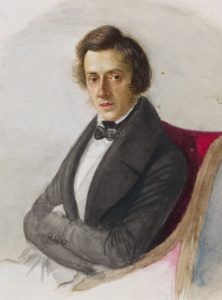
The outstanding French writer Honoré de Balzac admitted that Chopin was a man of many talents, including acting and painting. This is confirmed by his biographers but in turn it was questioned by George Sand. Do we have evidence to support this view?
I believe that Chopin’s greatest talent, after his talent as a composer and pianist, was his acting talent. His so-called poliszynady, i.e. something usually performed in an intimate circle of friends, included scenes showing the typical characters of the surrounding world including famous artists such as Franz Liszt. I do not think that these skills, described by people close to Chopin, are questioned by George Sand who was a theatre lover after all. It is interesting to note that at Chopin’s initiative, a puppet theatre was established at her summer residence in Nohant.
Under what conditions did he decide to leave his homeland and go to Paris?
Chopin’s departure from Warsaw on 2 November 1830 was connected with his plans to gain experience abroad. Vienna was first on his route but it is known that Chopin was also planning a trip to Italy. He had letters of recommendation to Naples, but the revolutionary events in Italy prevented him from fulfilling this plan. The turning point for Chopin’s departure from Vienna to Paris, and then for him remaining in exile in the French capital, was the news about the failure of the November Uprising, which reached Chopin in mid-September 1831, when he was in Stuttgart.
He left the country shortly before the outbreak of the November Uprising. How did he react to the news of the fall of the Polish independence?
It was a traumatic experience for him. In the so-called Stuttgart diary, Chopin exhibits – in a way never seen before – an expression of his despair. He transferred to the pages of this diary images of the repression of Russian soldiers against the inhabitants of Warsaw and his relatives, which were born in his vivid imagination at the news of the final defeat of the uprising.
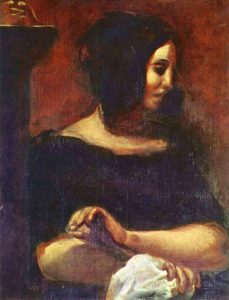
After arriving in France, how was he received in Parisian salons?
Chopin was an unknown pianist-composer from a distant war-torn country. However, thanks to letters of recommendation from prominent Viennese personalities, as well as undoubted diplomatic talents and personal charm, he managed to quickly establish his position. In subsequent performances he proved to be both an excellent pianist and also a composer who was able to compose in an already distinct and individual style. Contacts with Parisian salons, which began to seek his company, soon gained him a group of aristocratic students and secured him a stable income.
Chopin’s relationships with women are probably the topic of many exciting conversations. In order not to go deeper into this issue, I will only ask about the relationship with the French writer George Sand. How did this turbulent relationship between the sensitive composer and the temperamental Sand affect the master’s works?
I believe that Chopin’s eight-year relationship with George Sand was of paramount importance to his life and work. Understanding his genius perfectly, she created excellent conditions for creative work during the summer months of 1839–1846 at her estate in Nohant. It was there that his most famous works were created: successive Ballads, Nocturnes, Polonaises, Scherzos and Sonatas, etc. This relationship had several phases, from their love and romantic journey to Majorca, through later transitions related to Chopin’s illness when George Sand took on the role of a caring “babysitter”. Their relationship then turned from an emotional infatuation into a deep, existential relationship, which was only shaken by family conflict related to the marriage plans of George Sand’s daughter – Solange.
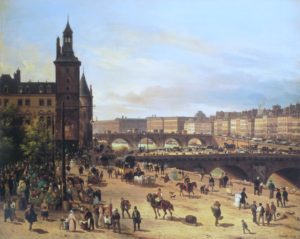
To this day, Chopin’s works enjoy great interest among music lovers around the world.
The message of Chopin’s music turned out to be universal, going well outside the boundaries of musical cultures. There is a saying that individual listeners perceive Chopin’s music as if it was addressed directly to them, so intimate and at the same time direct. I think that this is also due to the perfection of this music, the feeling that it does not have a single unnecessary note, just like in the case of other great masters: Bach or Mozart.
The great German composer Robert Schumann noticed the enormous influence Chopin’s music had on Polish patriotism. He called his works, not without reason, “cannons hidden in flowers.” When thinking about Poland’s turbulent history, about national uprisings, the struggle for independence, and while reading the works of Polish poets and writers, and admiring the paintings of national painters – it’s surely hard not to hear Chopin’s music, isn’t it?
I think that the message of Chopin’s music also includes – apart from universal and purely musical values - deep patriotic meaning, that are especially clear to Polish recipients. We find a similar message in works by great Polish poets from the circle of Great Emigration in Paris: Adam Mickiewicz, Juliusz Słowacki, and Cyprian Kamil Norwid. Chopin’s genius can be found in clear sounds, there is no need for words, he managed to embrace the same message in his music as poets did in Polish Romantic literature.
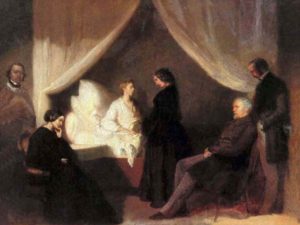
In Roman Polański’s film “The Pianist” there is an authentic scene when Władysław Szpilman plays the Ballade in G minor in the presence of a German officer in the ruins of a Warsaw destroyed by the Germans. This moving image is probably great proof of the greatness of Chopin’s work. This is the “cannon” Schumann wrote about.
This scene is emotionally moving when, in the presence of the executioner and the victim – in an almost inhuman situation – the music that comes from beneath his hands is a pure message of freedom.
The celebration of the 210th anniversary of Fryderyk Chopin’s birthday coincides with the 18th International Chopin Piano Competition. In Poland, one can often hear opinions on the performances of particular participants, who often lack musical education…
This is probably the best testimony to the clearness and feeling of understanding of Chopin’s music and its power, which unites a large group of listeners around the world.
Interviewers: Piotr Abryszeński, Piotr Bejrowski
Translation: Alicja Rose & Jessica Sirotin

